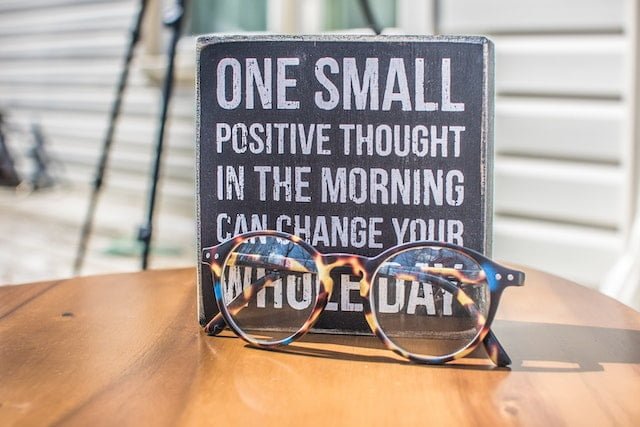Positive self-regard and a compassionate mind are two concepts that have been gaining attention in the field of psychology and self-improvement. While they may seem like different approaches, both concepts share some striking similarities. In this article, we will explore the similarities between positive self-regard and a compassionate mind, and how they can benefit us in our lives.
Positive self-regard is the belief in one’s own worth and value. It involves accepting oneself unconditionally, regardless of one’s strengths, weaknesses, or mistakes. Positive self-regard is an essential component of good mental health, as it promotes self-esteem, self-confidence, and a positive outlook on life.
A compassionate mind, on the other hand, involves treating oneself and others with kindness, empathy, and understanding. It involves recognizing that suffering is a part of the human experience, and responding to it with compassion, rather than judgment or criticism. A compassionate mind is a skill that can be developed through meditation, mindfulness, and self-reflection.
The similarities between positive self-regard and a compassionate mind are numerous. Here are some of the most significant similarities:
Both involve self-acceptance
Positive self-regard and a compassionate mind both involve accepting oneself unconditionally. In positive self-regard, this means accepting oneself for who they are, flaws and all. In a compassionate mind, this means recognizing that suffering is a part of the human experience, and treating oneself with kindness and understanding, rather than harsh judgment or criticism.
Both involve empathy
Both positive self-regard and a compassionate mind involve empathy. Positive self-regard involves recognizing and appreciating one’s own feelings, as well as the feelings of others. A compassionate mind involves understanding and empathizing with the suffering of others, as well as one’s own suffering.
Both promote mental health
Positive self-regard and a compassionate mind both promote mental health. Positive self-regard promotes self-esteem, self-confidence, and a positive outlook on life. A compassionate mind promotes a sense of connection with others, a greater sense of purpose, and a reduction in stress and anxiety.
- Both are skills that can be developed
Both positive self-regard and a compassionate mind are skills that can be developed through practice and effort. Positive self-regard can be developed through self-reflection, mindfulness, and self-compassion exercises. A compassionate mind can be developed through meditation, mindfulness, and acts of kindness towards oneself and others.
Both involve a shift in perspective
Both positive self-regard and a compassionate mind involve a shift in perspective. In positive self-regard, this means shifting from self-criticism and self-judgment to self-acceptance and self-compassion. In a compassionate mind, this means shifting from judgment and criticism towards oneself and others to empathy, understanding, and kindness.
Unconditional positive regard is the ability to accept and value oneself or others, regardless of any perceived flaws, mistakes, or negative behavior. It is an approach that is often used in therapy to promote growth, healing, and self-acceptance.
The benefits of having unconditional positive regard for oneself and others include:
- Increased self-esteem and self-worth
- Improved relationships and communication
- Greater emotional resilience and ability to handle challenges
- More open-mindedness and empathy towards others
- Greater sense of inner peace and happiness
The drawbacks of taking this stance may include:
- Being taken advantage of or mistreated by others who do not reciprocate the same level of respect and positivity
- Overlooking important flaws or negative behavior in oneself or others
- Feeling guilty or ashamed for not being able to maintain a constant level of positivity towards oneself or others
- Potentially perpetuating harmful behavior or attitudes by accepting them without criticism or constructive feedback
- Losing a sense of personal boundaries or identity by prioritizing the needs of others over one’s own.
Having a compassionate mind is similar to having unconditional positive regard for oneself and others. Both approaches involve treating oneself and others with kindness, empathy, and understanding, even in difficult or challenging situations.
An argument for having unconditional positive regard can be seen in the story of Anne Frank. Despite living in hiding for years during the Holocaust, Anne maintained a positive outlook on life and believed in the goodness of humanity, even in the face of extreme adversity.
An argument against having unconditional positive regard can be seen in the story of Harvey Weinstein. Many individuals and institutions turned a blind eye to his abusive behavior towards women for years, which allowed him to continue his harmful actions without consequence.
Another argument for having unconditional positive regard can be seen in the life of Nelson Mandela. Despite being imprisoned for 27 years and facing intense oppression and discrimination, Mandela maintained a positive outlook on life and promoted forgiveness and reconciliation between different groups.
An argument against having unconditional positive regard can be seen in the actions of Adolf Hitler. Despite his horrific actions and atrocities, there were individuals who maintained a positive view of him and his leadership, which allowed him to gain and maintain power for years.
In conclusion, positive self-regard and a compassionate mind are two concepts that share many similarities. Both involve self-acceptance, empathy, and a shift in perspective. Both promote mental health and can be developed through practice and effort. By cultivating positive self-regard and a compassionate mind, we can lead more fulfilling, meaningful, and connected lives.













